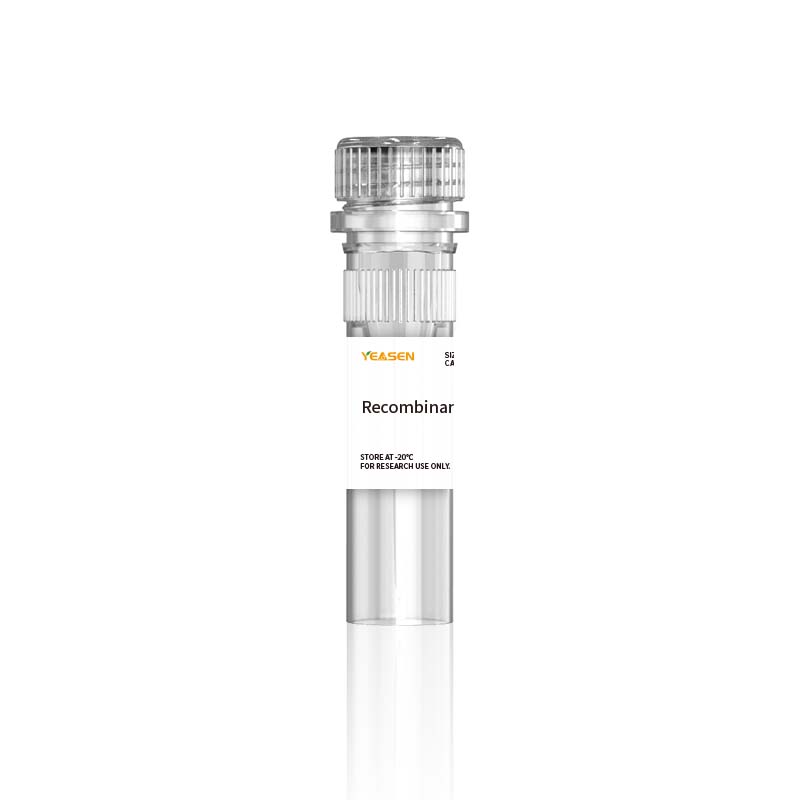Tanım
Fas, also known as APO1 or CD95, belongs to the death receptor subfamily of the TNF receptor superfamily and is designated TNFRSF6. All appear to block the extrinsic apoptosis pathway induced by the Fas ligand (FasL, TNFSF6), a type II transmembrane protein of the TNF family that can be expressed on activated Tlymphocytes, NK cells and cells in immune privileged sites, or shed in soluble form. Engagement of FAS induces oligomerization of preformed Fas trimers. The activated receptor recruits the adaptor molecule FADD to form the DeathInducing Signaling Complex (DISC). Upon activation, caspases in the DISC initiate the apoptotic signaling cascade. Fas is prominent in epithelial cells, hepatocytes, activated mature lymphocytes, virus-transformed lymphocytes and tumor cells. It is an essential mediator in the activationinduced death of T lymphocytes that terminates the immune reaction. In immuneprivileged tissues, infiltrating Fasbearing lymphocytes and inflammatory cells are killed by FasL engagement. Both humans and mice with genetic defects in Fas accumulate abnormal lymphocytes and develop systemic autoimmunity. The Fas pathway also appears to crosscommunicate with the BIM (mitochondrial/intrinsic) apoptosis pathway.
Specifications
|
Synonyms |
FASLG receptor; CD95; APT1; FAS1; TNFRSF6; FAS; ALPS1A; APO1; FASTM; FasR |
|
Uniprot No. |
P25445.1 |
|
Source |
Recombinant Human Fas/TNFRSF6/CD95 Protein is expressed from HEK293 Cells with hFc tag at the C-terminal. It contains Gln26-Asn173. |
|
Molecular Weight |
Approximately 43.4 kDa. Due to glycosylation, the protein migrates to 55-70 kDa based on Tris-Bis PAGE result. |
|
Purity |
> 95% as determined by SDS-PAGE and HPLC. |
|
Activity |
ELISA Data:Immobilized Human Fas Ligand, His Tag at 2μg/ml (100μl/Well) on the plate. Dose response curve for Human Fas, hFc Tag with the EC50 of 0.12μg/ml determined by ELISA. |
|
Endotoxin |
< 1.0 EU per 1μg of the protein by the LAL method. |
|
Formulation |
Lyophilized from 0.22μm filtered solution in PBS (pH 7.4). Normally 5% trehalose is added as protectant before lyophilization. |
|
Reconstitution |
Centrifuge tubes before opening. Reconstituting to a concentration more than 100 μg/mL is recommended (usually we use 1 mg/mL solution for lyophilization). Dissolve the lyophilized protein in distilled water. |
Storage
Transported with ice packs. Store at -20℃ to -80℃, valid for one year.
After reconstitution, store unopened at -20 to -80°C for 3 to 6 months. After reconstitution, store at 2 to 8°C for 2 to 7 days.
It is recommended to store in aliquots and freeze for the first use to avoid repeated freezing and thawing.
Note
1. Avoid repeated freezing and thawing.
2. For your safety and health, please wear lab coat and disposable gloves when operating.
3. This product is for scientific research purposes only.
Product Data

Ödeme ve Güvenlik
Ödeme bilgileriniz güvenli bir şekilde işlenir. Kredi kartı ayrıntılarını saklamıyoruz veya kredi kartı bilgilerinize erişimimiz yok.
Sorgu
Ayrıca sevebilirsiniz
SSS
Ürün yalnızca araştırma amaçlıdır ve insanlarda veya hayvanlarda terapötik veya teşhis amaçlı kullanım için tasarlanmamıştır. Ürünler ve içerikler, Yeasen Biotechnology'nin sahip olduğu patentler, ticari markalar ve telif haklarıyla korunmaktadır. Ticari marka sembolleri, tüm bölgelerde tescilli olmayıp, menşe ülkesini gösterir.
Bazı uygulamalar üçüncü tarafların ek fikri mülkiyet haklarına ihtiyaç duyabilir.
Yeasen, araştırmalarımızın güvenlik ve etik standartları sağlarken kritik soruları ele alması gerektiğine inanarak etik bilime kendini adamıştır.

